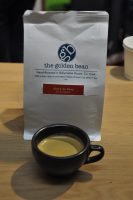 Welcome to the last of my three reports from the World of Coffee Event at Dublin. Since it was my first time at World of Coffee, I started off with a round-up two weeks ago, where I looked the event itself, which I liked to a cross between the London Coffee Festival and Caffè Culture, incorporating the best of both events. I followed that up last weekend with a look at some of the (many) espresso machines that were on display, plus a look at the Travel Press from Espro, which was my surprise discovery at World of Coffee.
Welcome to the last of my three reports from the World of Coffee Event at Dublin. Since it was my first time at World of Coffee, I started off with a round-up two weeks ago, where I looked the event itself, which I liked to a cross between the London Coffee Festival and Caffè Culture, incorporating the best of both events. I followed that up last weekend with a look at some of the (many) espresso machines that were on display, plus a look at the Travel Press from Espro, which was my surprise discovery at World of Coffee.
However, most of the time I was at The Village, an area reserved for various small batch speciality roasters. I used this as an opportunity to catching up with various European roasters that I otherwise wouldn’t get to meet, including several Irish roasters who were out in force.
You can see precisely who after the gallery.
Before we dive into The Village proper, there were quite a few roasters out and about in the main exhibition space. This included Glasgow’s Matthew Algie, as well as Allpress, who I only discovered after World of Coffee had shut up shop for good on Saturday evening! That’s how big/busy it was! I also noticed Square Mile and Caravan, but since these are roasters that I already know well, I passed on by, particularly as I’d recently spent a lot of time with Square Mile at the London Coffee Festival. I did, however, call in to see my Hope & Glory friends, who were tucked away on the Lincoln & York stand. They got me going with my first espresso at World of Coffee, a shot of one of my favourites, the Blenheim blend.
Elsewhere, Glasgow’s Dear Green Coffee had a guest spot on the Beyond the Bean stand. I’d missed Lisa (the force of nature behind Dear Green) at the London Coffee Festival so it was good to catch up with her and to try Dear Green’s latest Kenyan as a filter coffee. Also on the stand was Dublin’s Roasted Brown. Since I’d given Roasted Brown’s coffee a good going over the day before when I popped into the shop in Dublin city centre, I passed on further offers of coffee!
UK roasters were well represented in the Village itself. I said hello to, amongst others, Origin, Small Batch and J Atkinson & Co. I also wandered past Climpson and Sons, where I had my very first coffee on day one, a filter, which, I believe, was a Rwandan, but I cunningly forgot to write it down… Or photograph it… In my defence, I hadn’t had any coffee at that point, so was barely functioning!
I also said hello to Coffee Bird, where my friend Alison from BLK Coffee was helping out, and had a rather lovely Guatemalan filter. Finally, on the UK front, I ran into Guy from the Decadent Decaf Coffee Co, who I’d met at Caffè Culture.
However, mostly, I was looking to meet the European roasters. Berlin’s The Barn was there, although I’ve had The Barn’s coffee numerous times in the UK, so instead I took the chance to say hello to Da Matteo from Gothenburg in Sweden, a name I’ve heard of, but whose coffee I don’t think I’ve had a chance to enjoy. Sadly Da Matteo was only doing cuppings at set times each day and I managed to miss all of them! Another roaster who I said hello to, but didn’t get a chance to enjoy the coffee, was Riga’s Rocket Bean. We also chatted about the state of speciality coffee in Latvia: the conclusion was that it’s getting there!
I had more success with Ditta Artigianale from Florence, where I tried an El Salvador espresso. This was a million miles away from a stereotypical, dark Italian espresso: lightly roasted and bright, it was nevertheless very well balanced. We chatted about the state of speciality coffee in Italy and again, the conclusion was that it’s getting there!
Next was Copenhagen’s Coffee Collective, which I would be calling in to see in Copenhagen the following week. There were several coffees on offer, all as filter, including a Colombian, two Kenyans and Panamanian Geisha which the Coffee Collective had just bought at a cost of over $50/lb (to give you an idea, the other coffees there cost between $5-$7/lb). I tried some of this fabled Geisha and it was lovely, but whether it was worth ten times the price of the others, I’m not so sure. Of these, the Kenyan Nyeri, which I was to try in Copenhagen as an espresso, was my favourite.
However, the people I was really interested in catching up with were the Irish roasters, who, unsurprisingly, were out in force. You can see who I met up with after the gallery.
Let’s start with Cork’s The Golden Bean. I’ve been following the rise of Cork’s coffee scene on social media and it’s been really booming recently. If I hadn’t been going straight from World of Coffee to Copenhagen, I’d have gone down to Cork to investigate. Golden Bean was serving various examples of its coffee, starting with another El Salvador espresso. This was more to my tastes than the one I’d had at the Ditta Artigianale stand. Both were good, but this wasn’t as bright, more a kiss in the mouth than a punch. I followed that up with a filter coffee which was so new, Golden Bean hadn’t had a chance to produce the labels for it. I think the label says Gekuyuini AA 2 and I think it was a Kenyan, but I could be wrong on both counts. Either way it was very fine!
Next up was Cloud Picker, a Dublin roaster whose coffee shop in the Science Gallery was on my (long) list of potential places to visit had I had more than just a morning in the city. Cloud Picker started life running the café five years ago and moved into roasting three years ago. Cloud Picker does roast espresso blends, but on the stand was focusing on its single-origin filters. I tried a very smooth Colombian, something I’d describe as an all-day coffee, followed by a Rwandan, which was much punchier.
Finally I caught up with Bailies Coffee Roasters which I’d missed at the London Coffee Festival. Bailies was down in force from Belfast and had taken over an entire triangle of stands, with a side booth thrown in for good measure! I’d had Bailies Kaimamui, a Kenyan coffee, as an espresso earlier that day at Coffee Angel, so the staff on the stand gave it to me to try as a filter as well. This meant that I’d come full circle, since I’d had the same coffee, as a filter, to start my day at Roasted Brown! Bailies’ offering was similar to the coffee I’d had at Roasted Brown, bright, but well-balanced, with just a hint of sweetness. I could also taste similarities with the espresso I’d had at Coffee Angel.
However, the highlight for me was an entire stand that Bailies had dedicated to its Colombia decaf, which used the EA (ethyl alcohol) sugar cane decaffeination method. Bailies was serving this as espresso and it was nothing short of excellent. A very sweet and fruity, coffee it was bursting with flavour and, if more proof were needed, nailed the myth that decaf coffee (when done well) is in any way inferior to its caffeinated brethren.
Bailies was good enough to give me a bag of the decaf to take away with me, which I’ve been going through in the evenings, and very fine it is too. I also took away a bag of a single-origin from Ecuador. I should also thank Dear Green Coffee and Small Batch, both of whom gave me bags of Kenyan coffee to take home with me. Finally, Diana from Taylor Street Baristas sought me out to deliver a package of Tanzanian coffee, which was very kind!
So, that’s it from the World of Coffee this year. Don’t forget to join me next year when World of Coffee moves on to Budapest (13th -15th June).
If you liked this post, please let me know by clicking the “Like” button. If you have a WordPress account and you don’t mind everyone knowing that you liked this post, you can use the “Like this” button right at the bottom instead. [bawlu_buttons]
Don’t forget that you can share this post with your friends using buttons below.

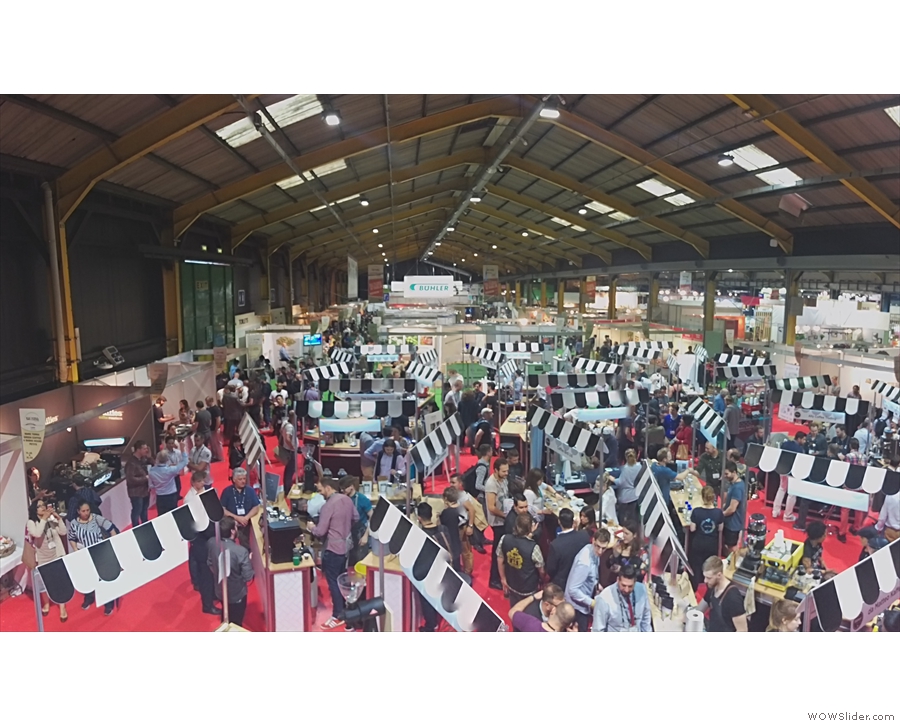
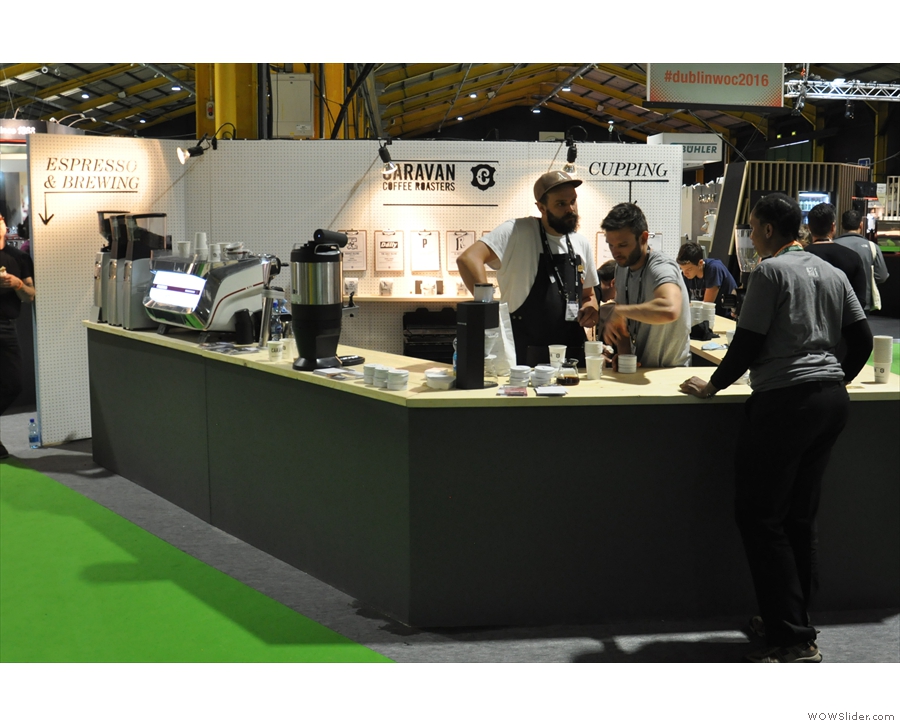
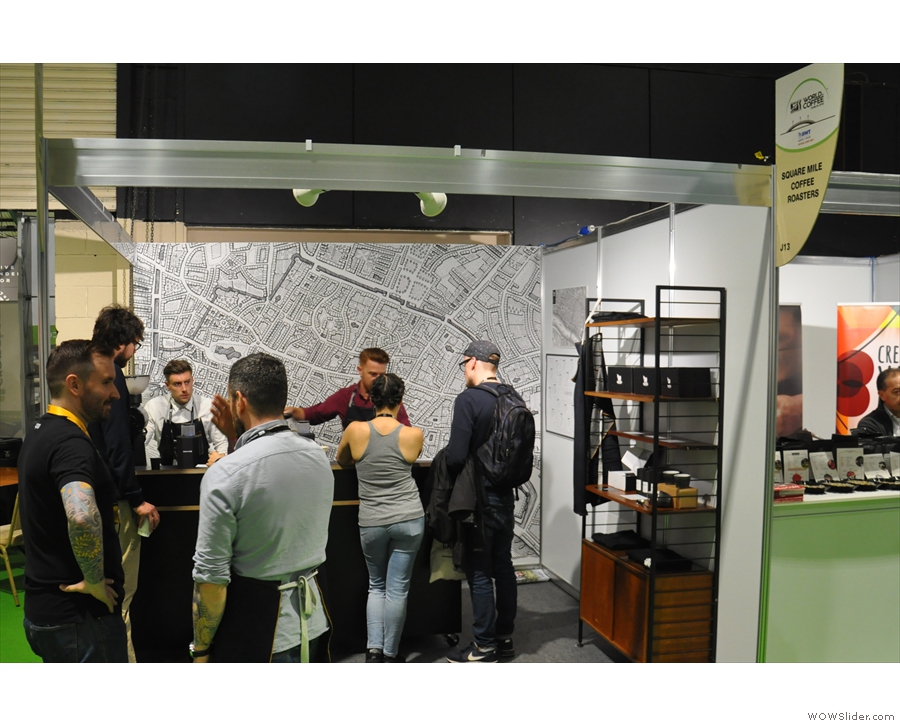
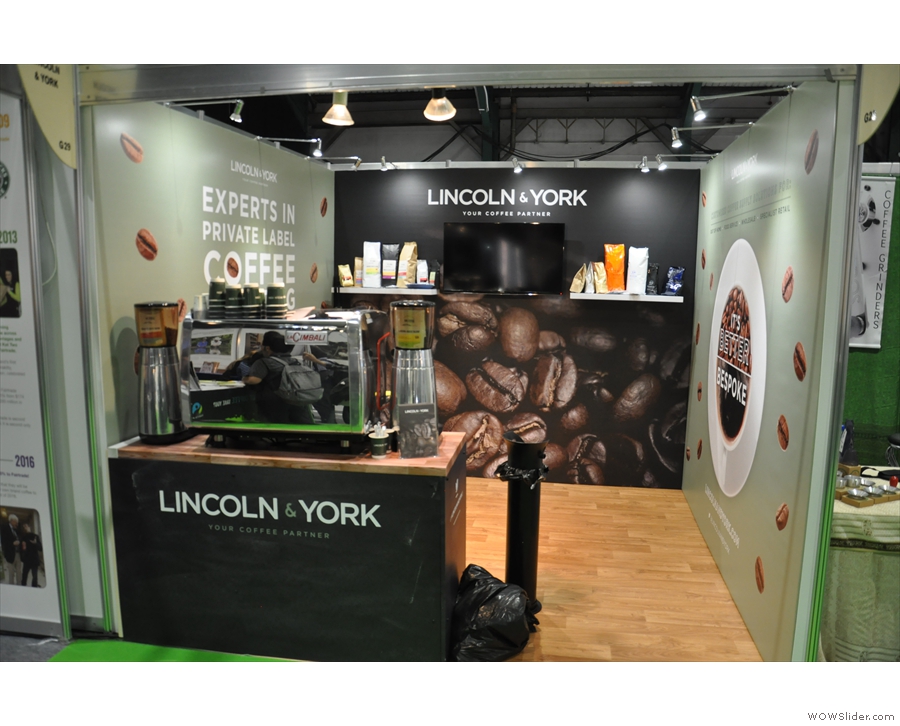
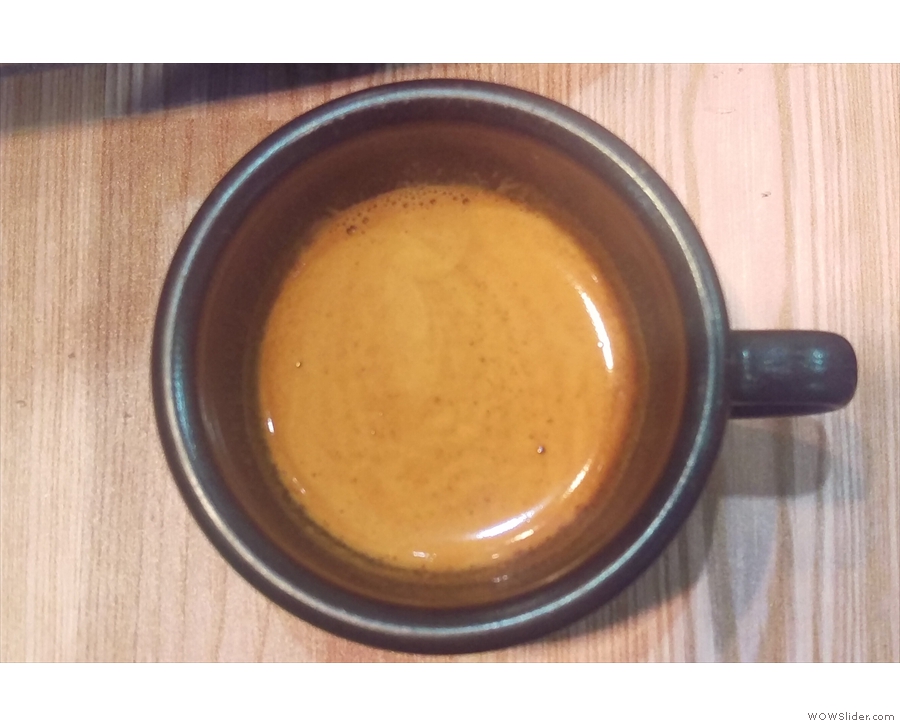
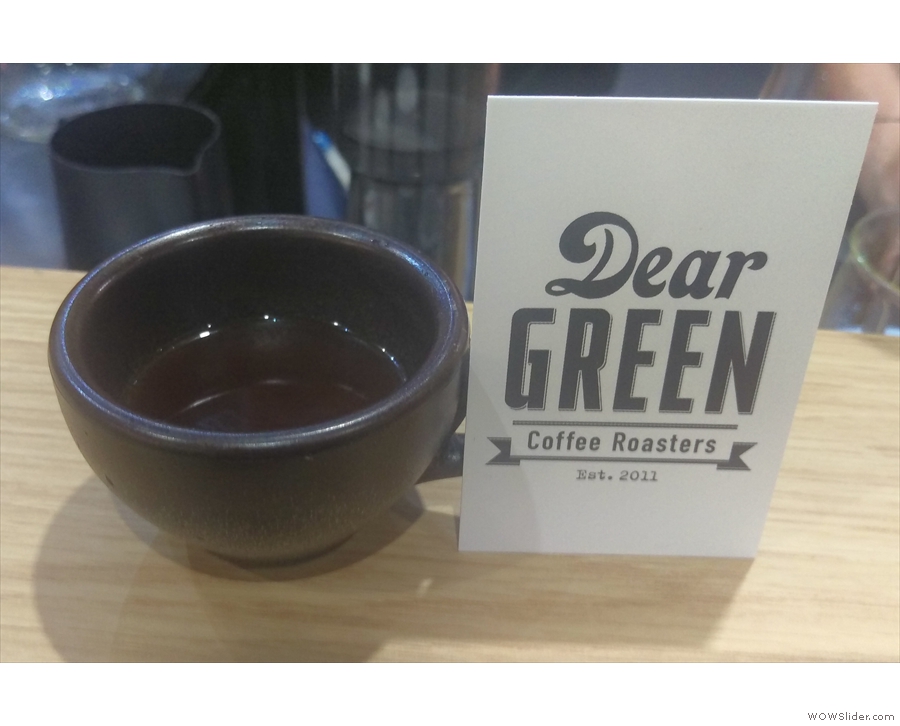
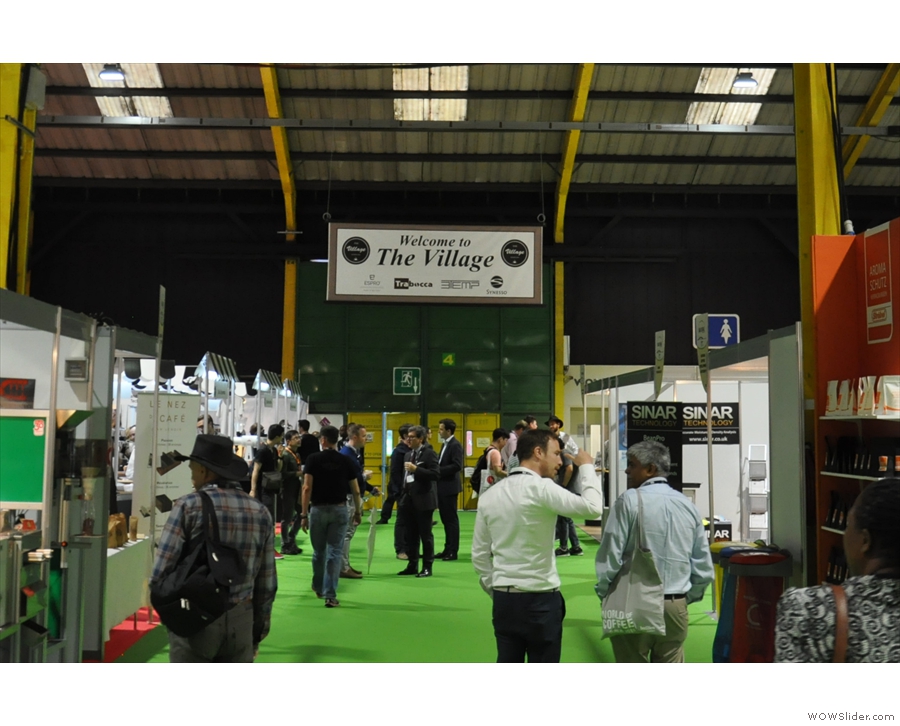
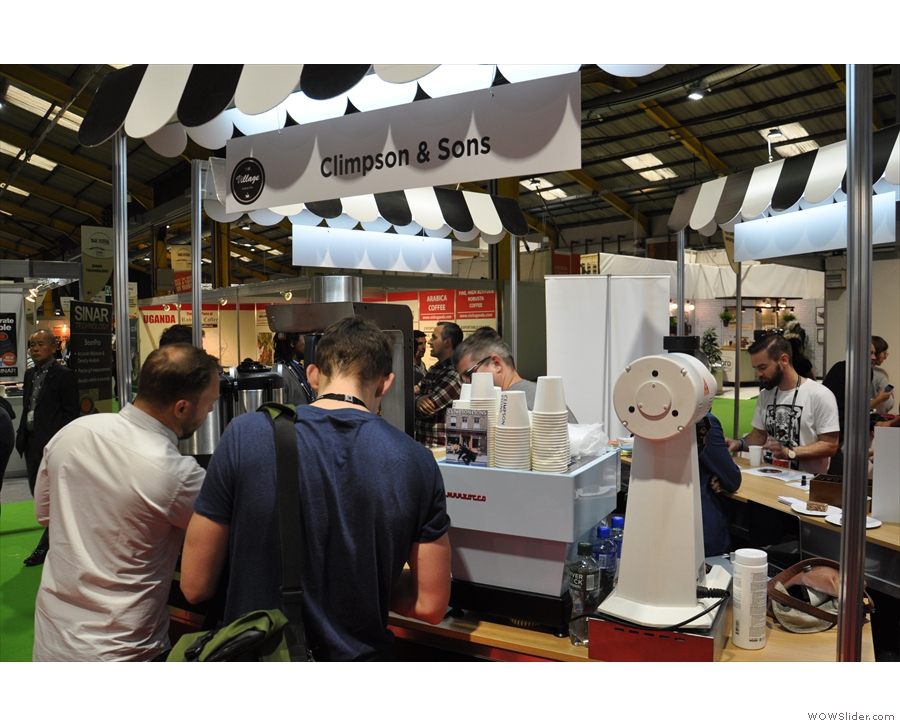
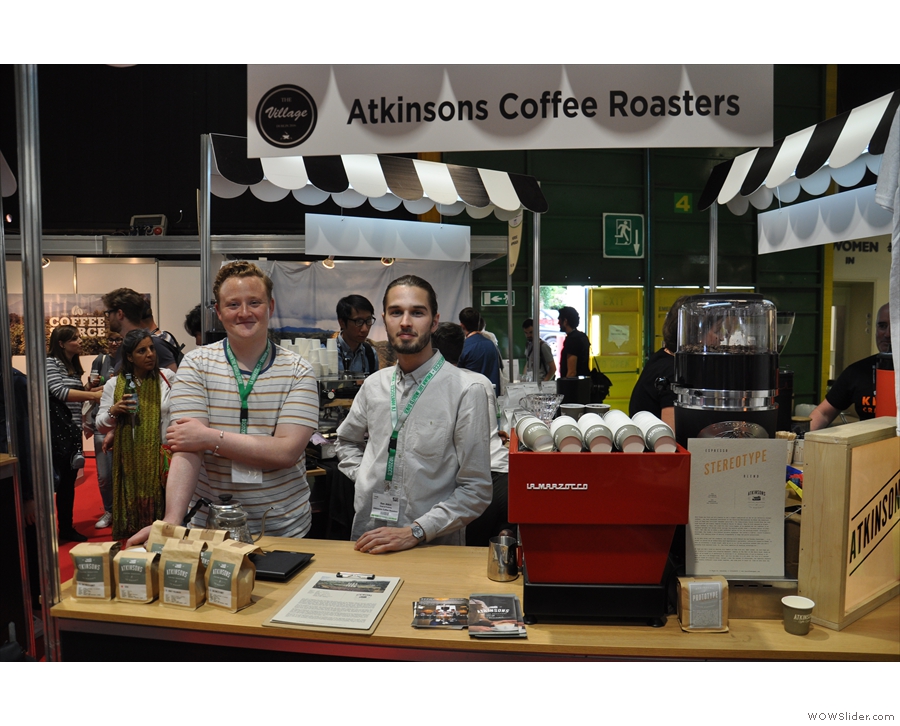
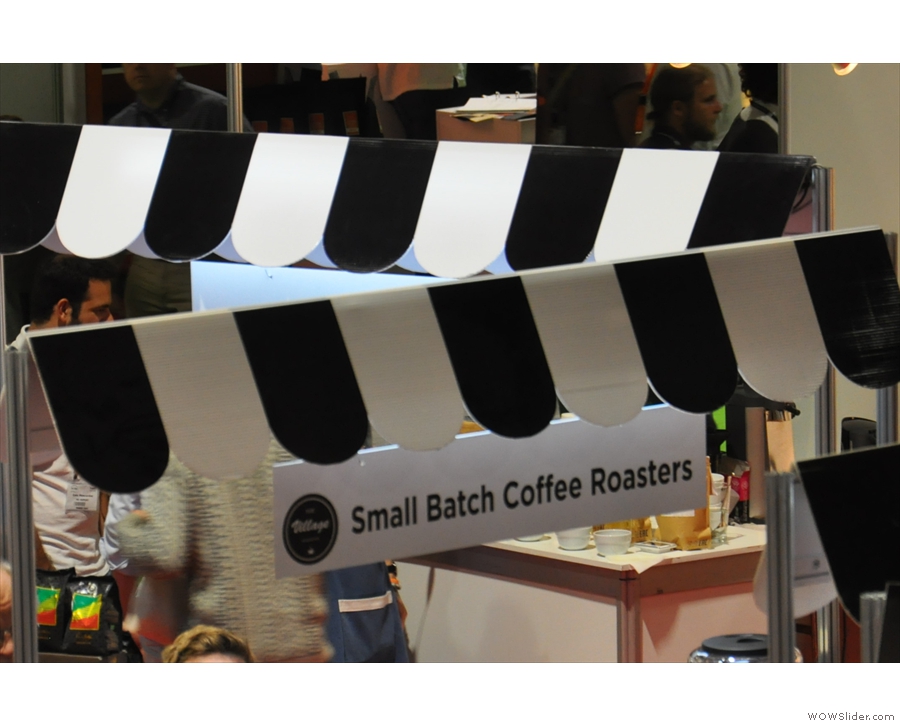
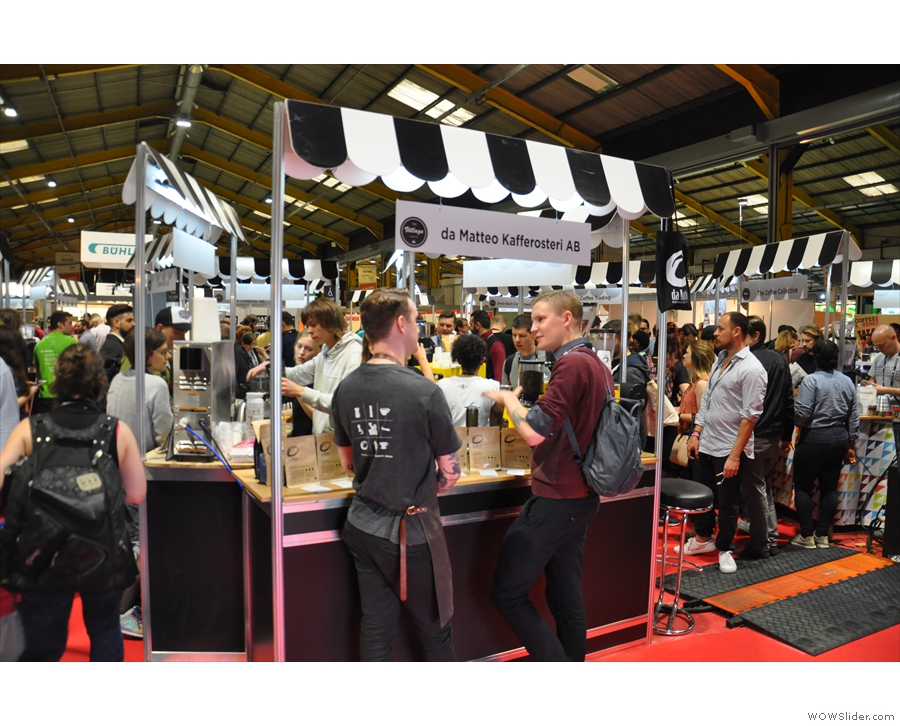
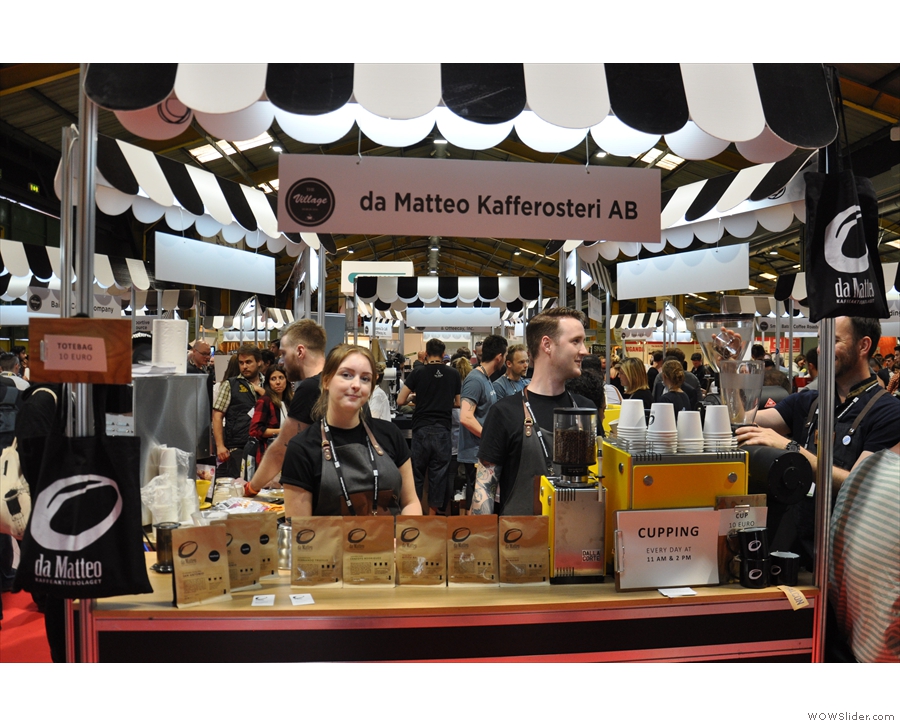
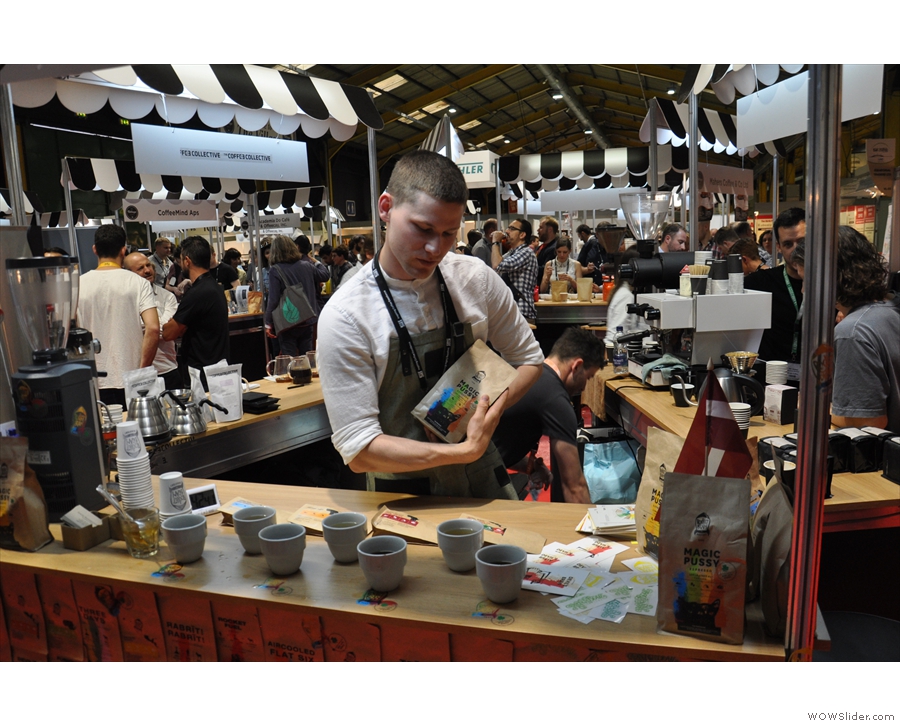
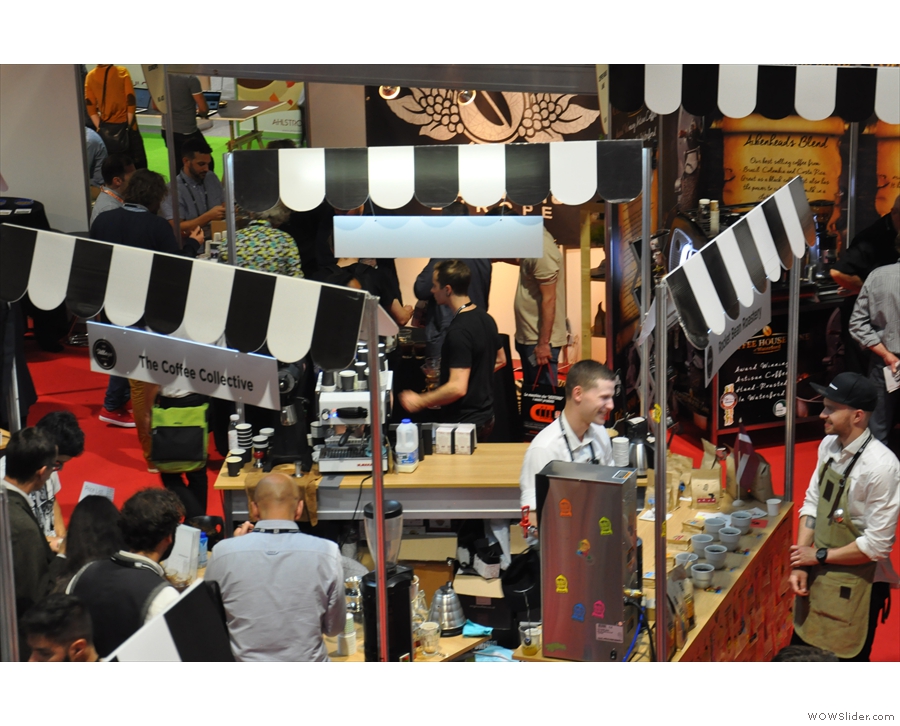
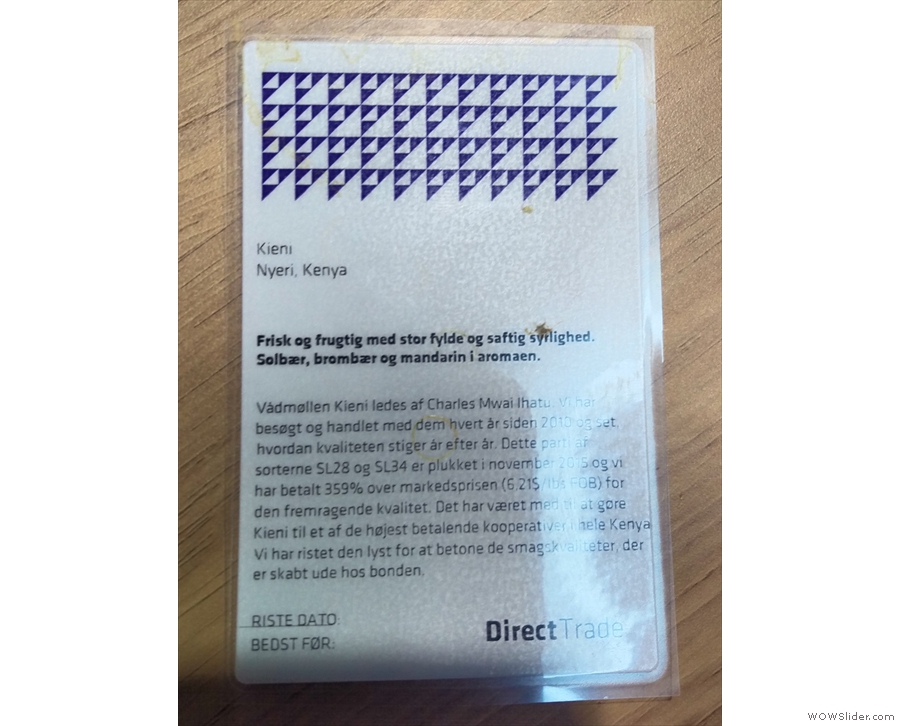
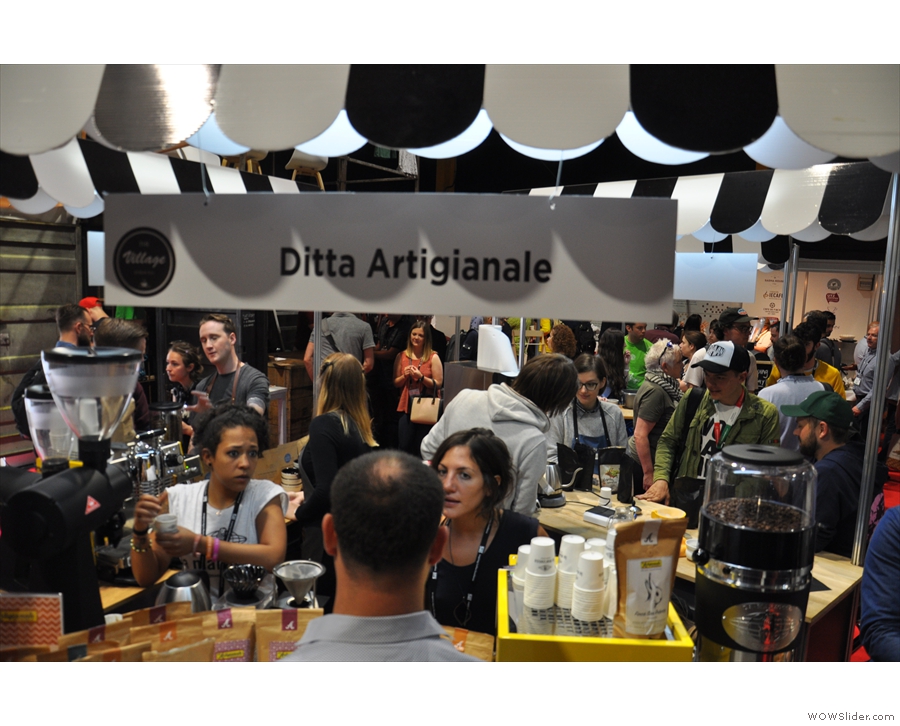
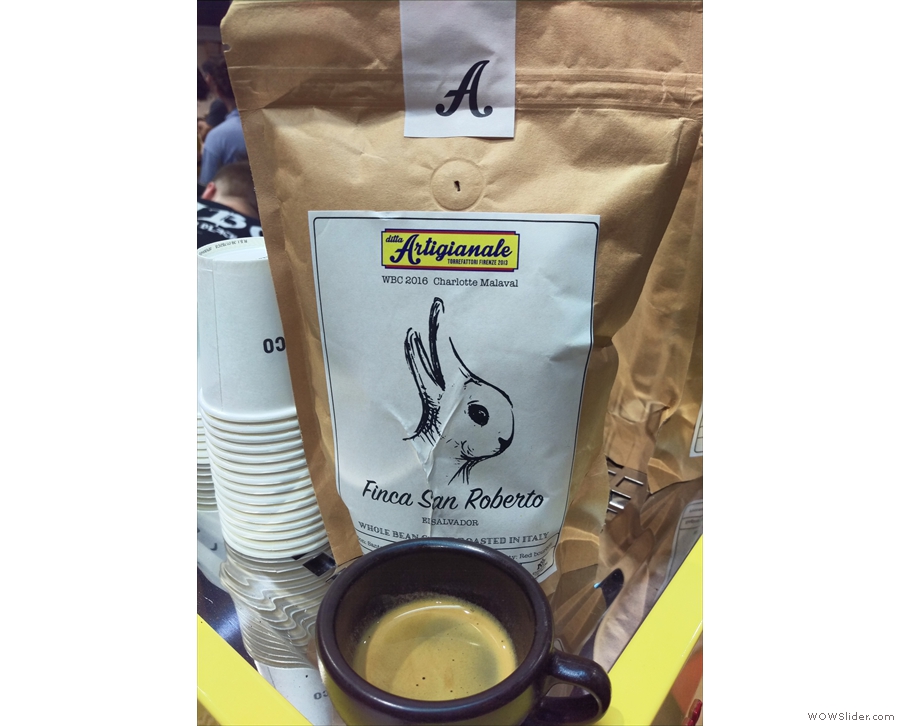
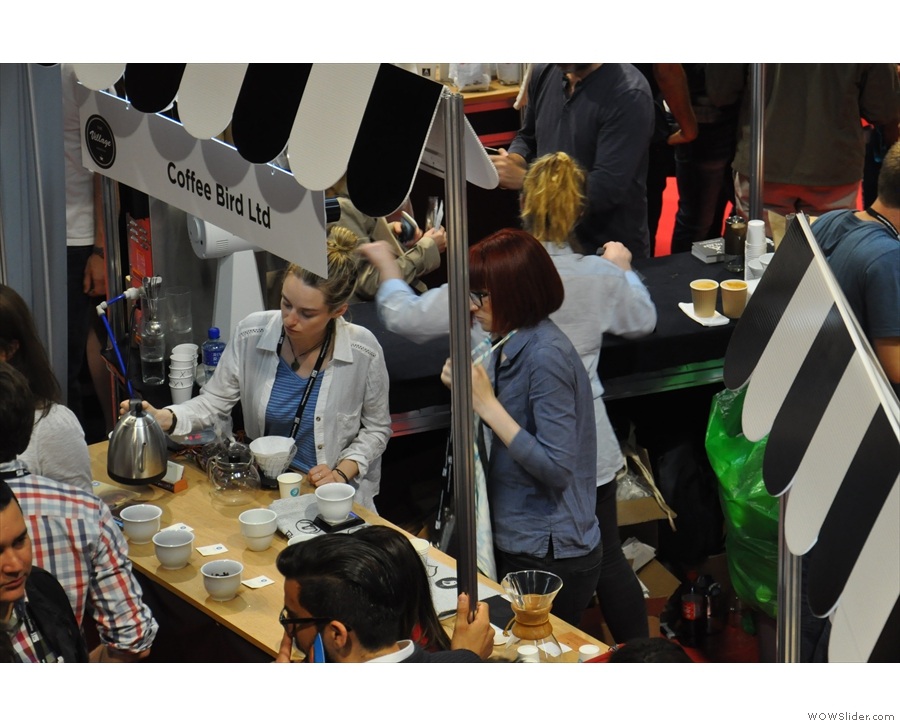
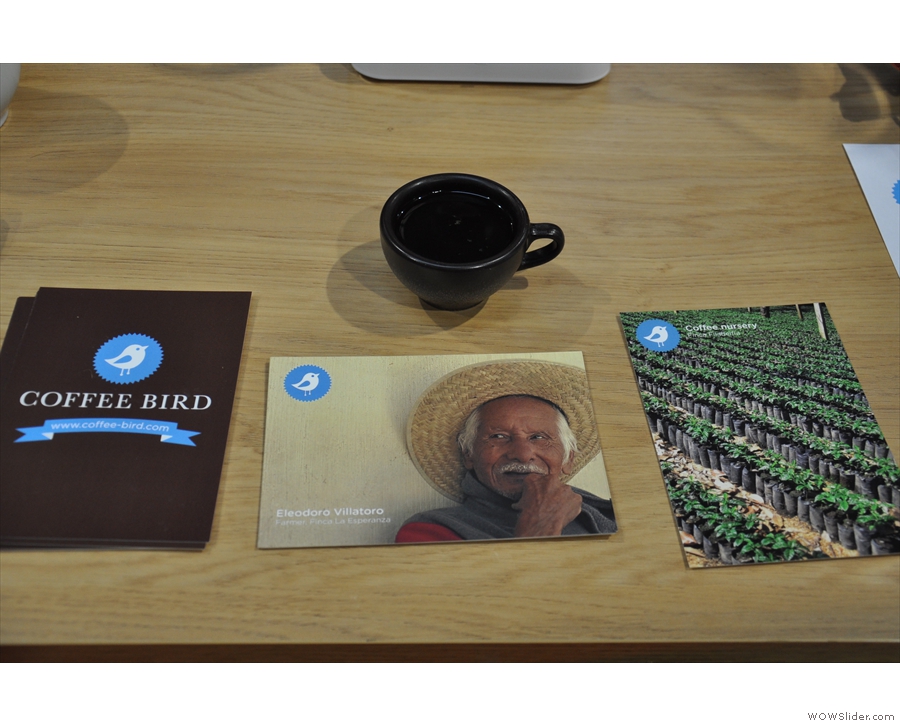
 1
1 2
2 3
3 4
4 5
5 6
6 7
7 8
8 9
9 10
10 11
11 12
12 13
13 14
14 15
15 16
16 17
17 18
18 19
19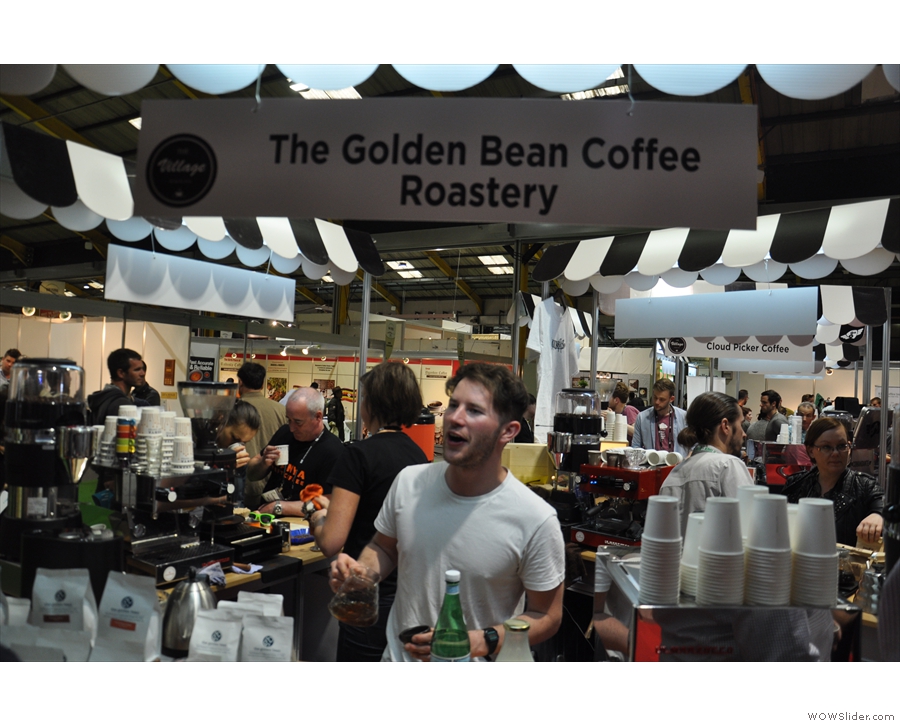
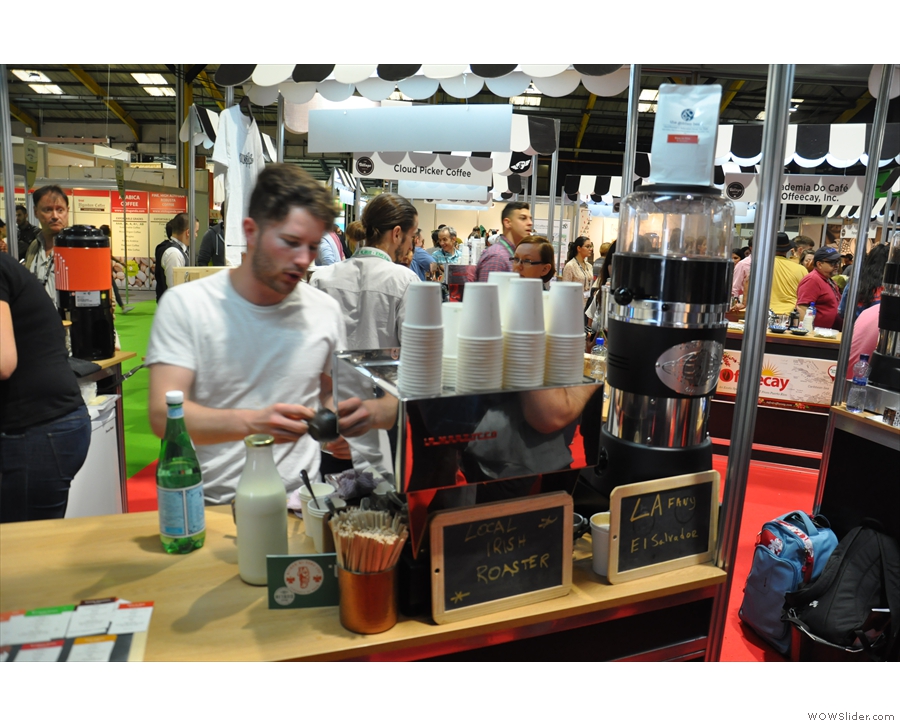
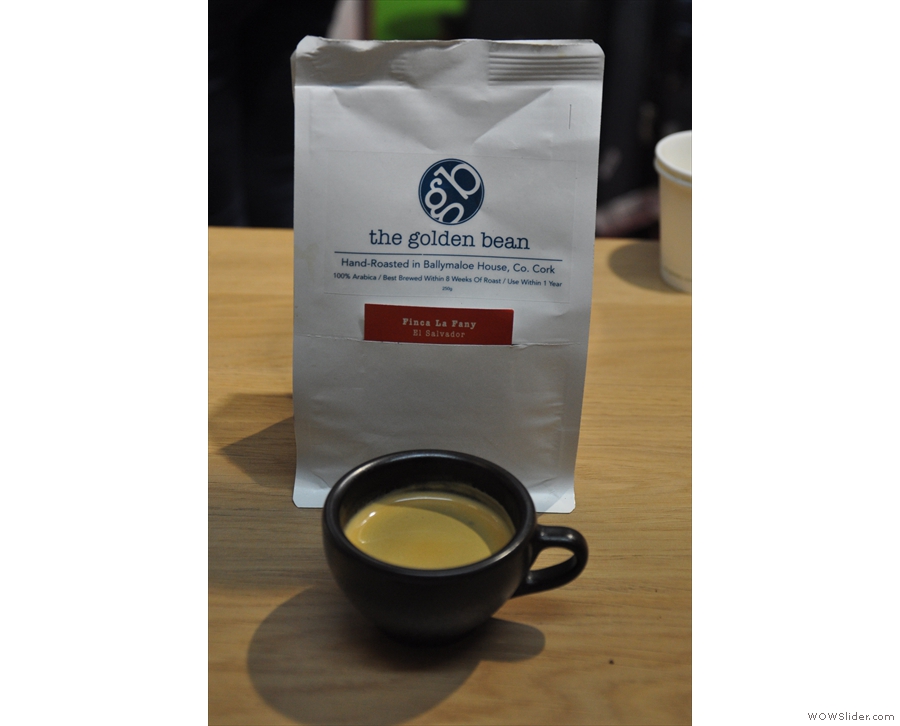
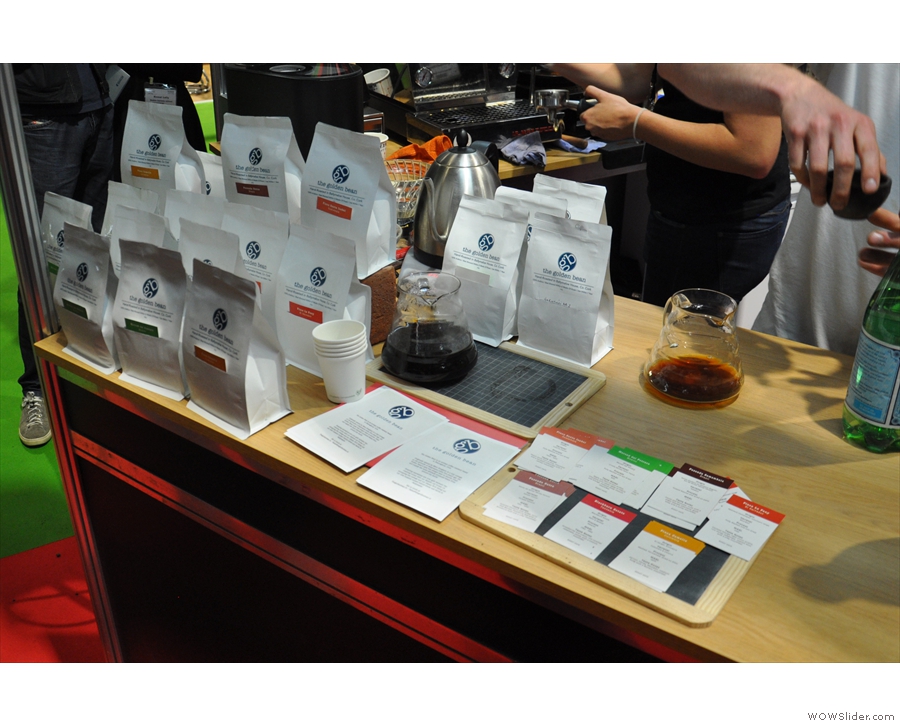
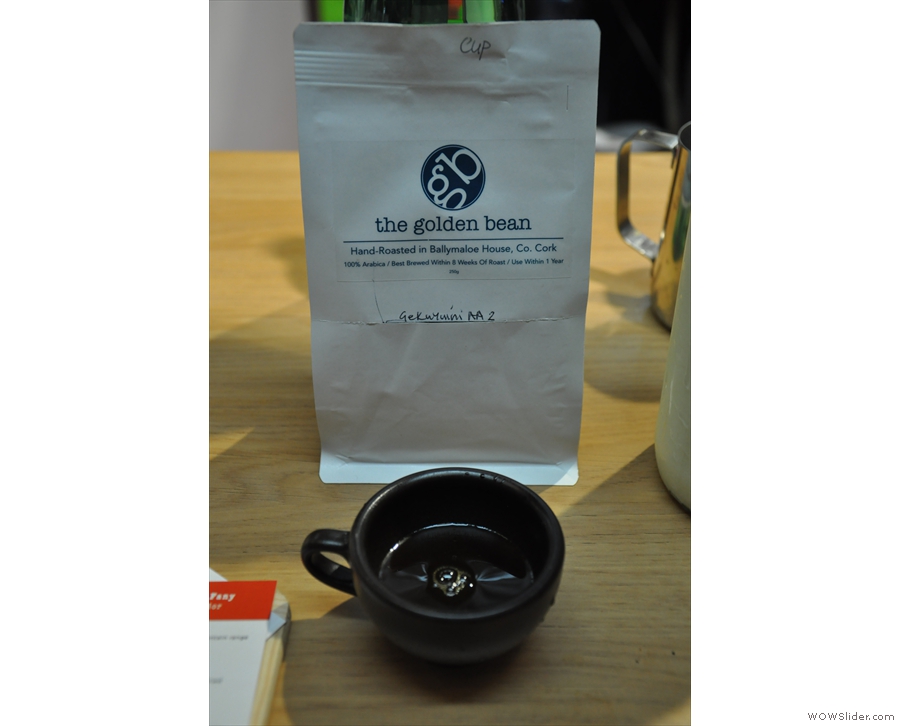
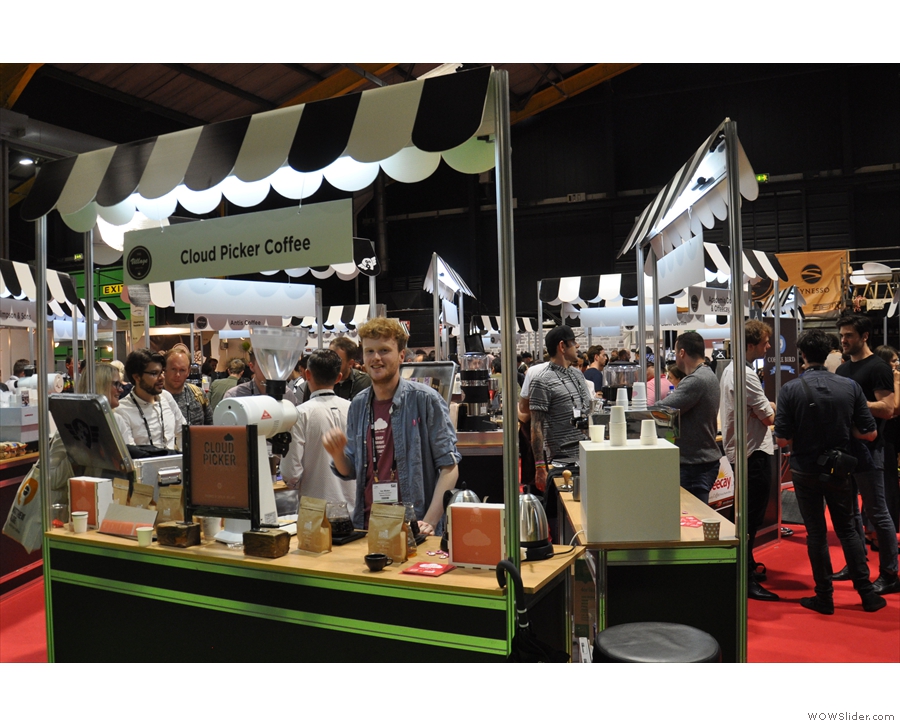
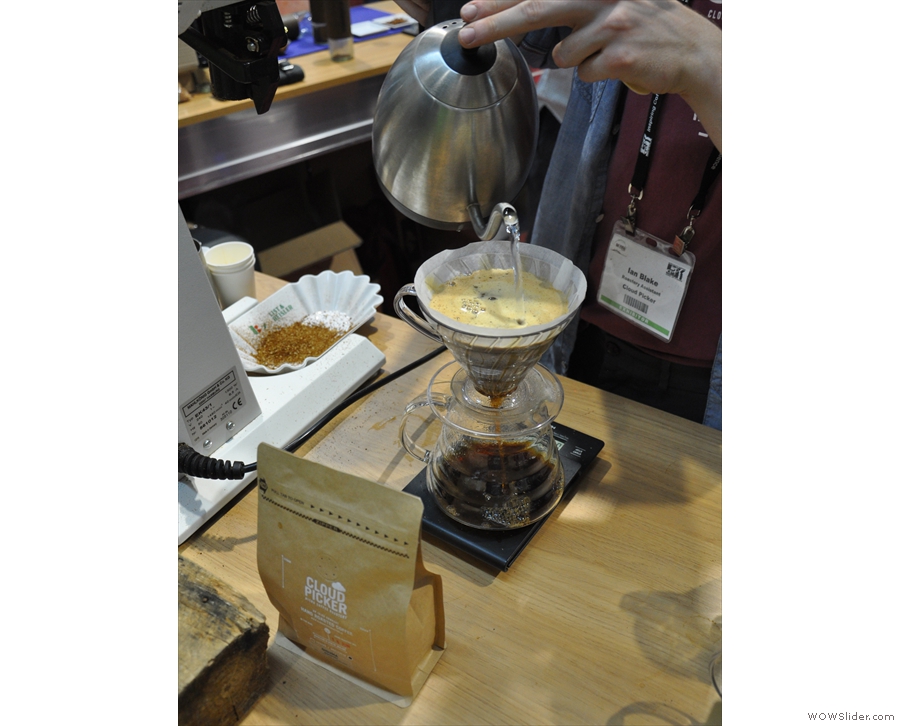
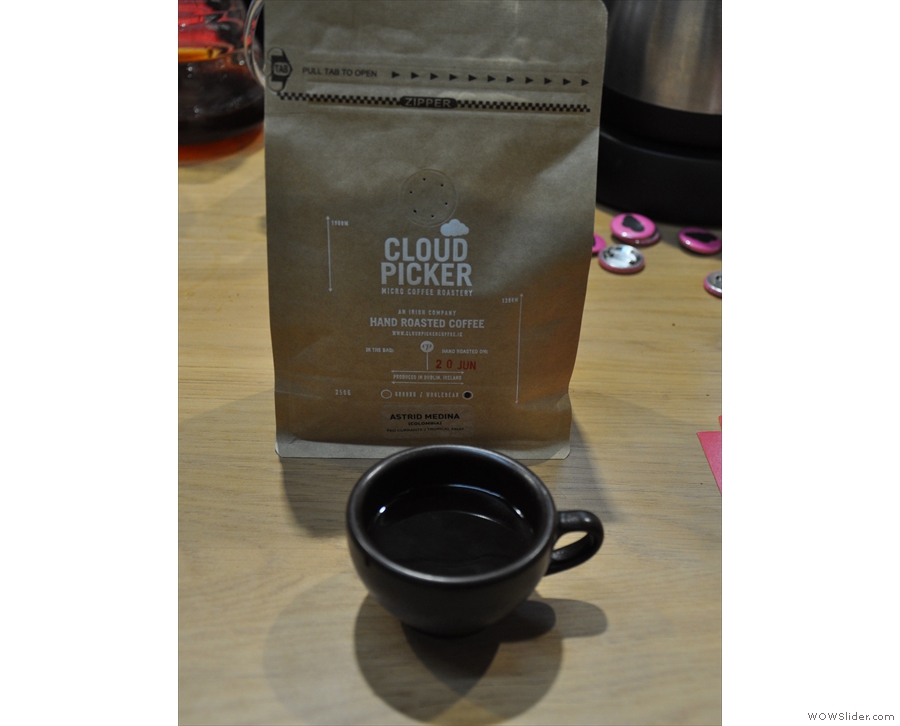
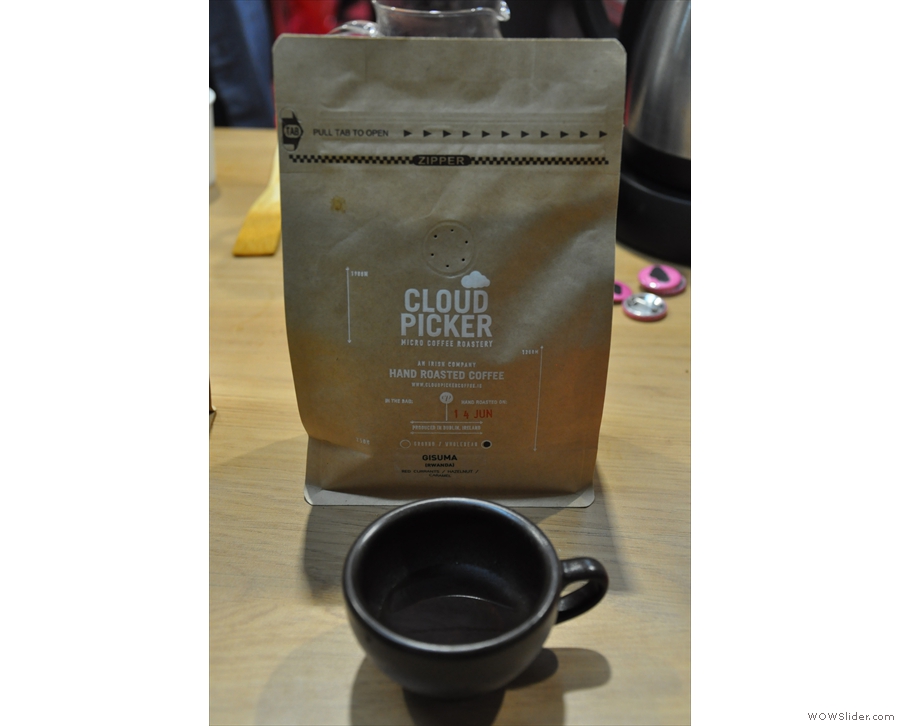
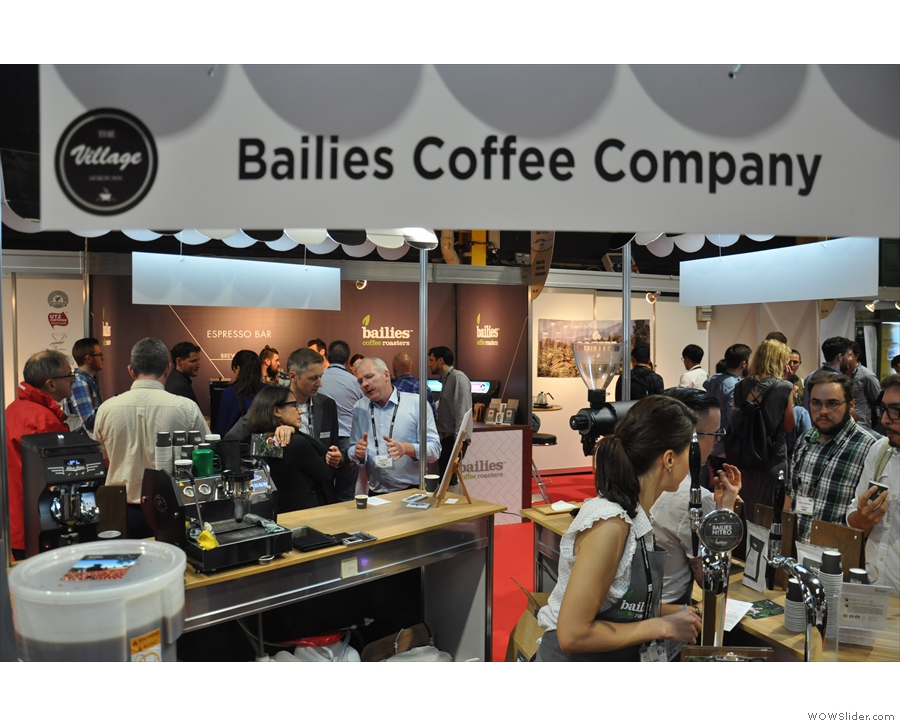
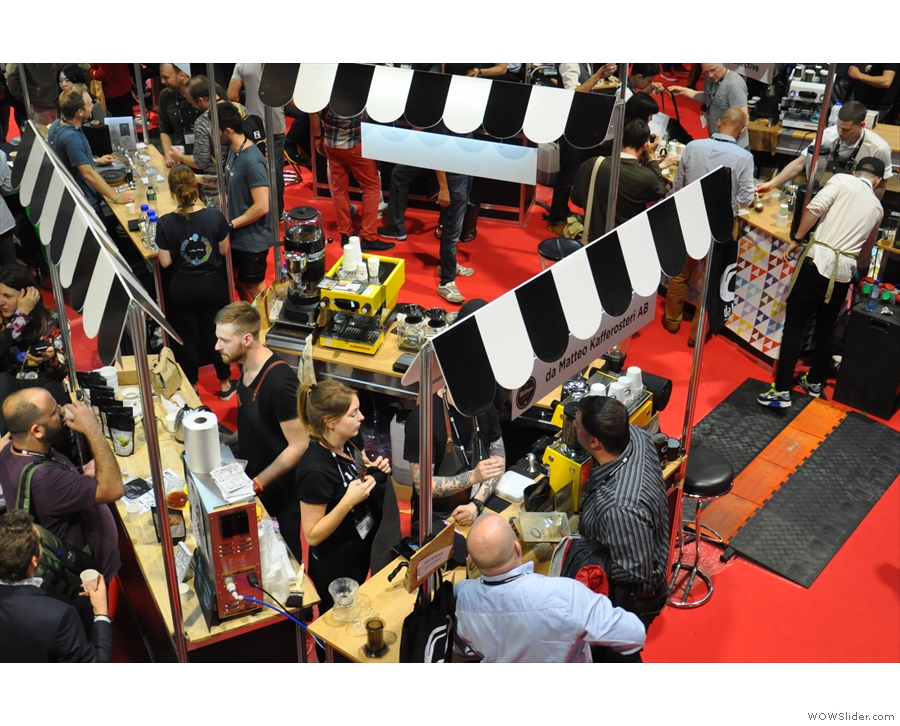
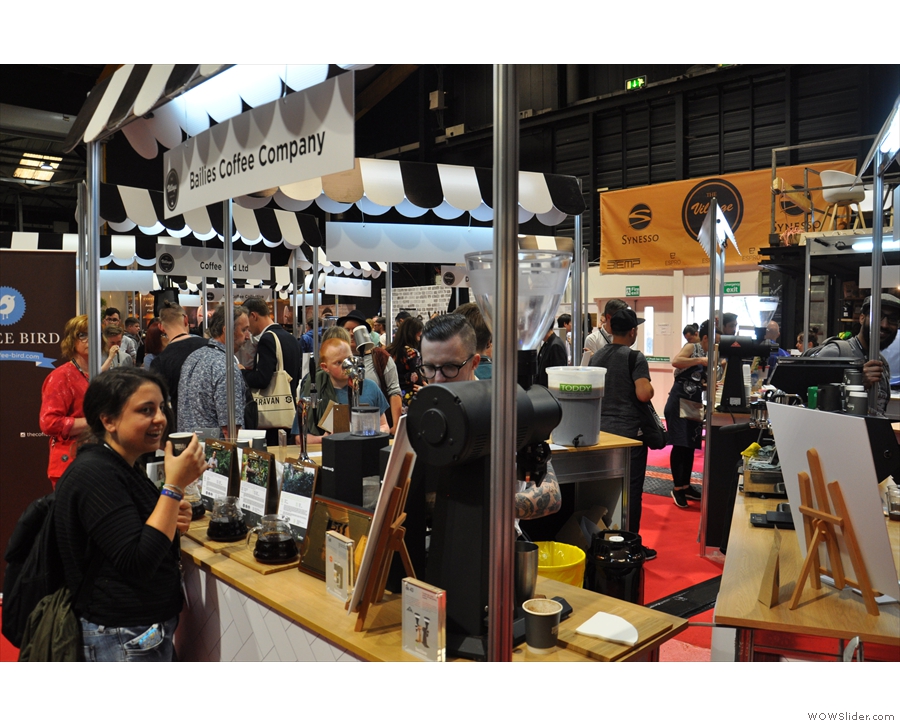
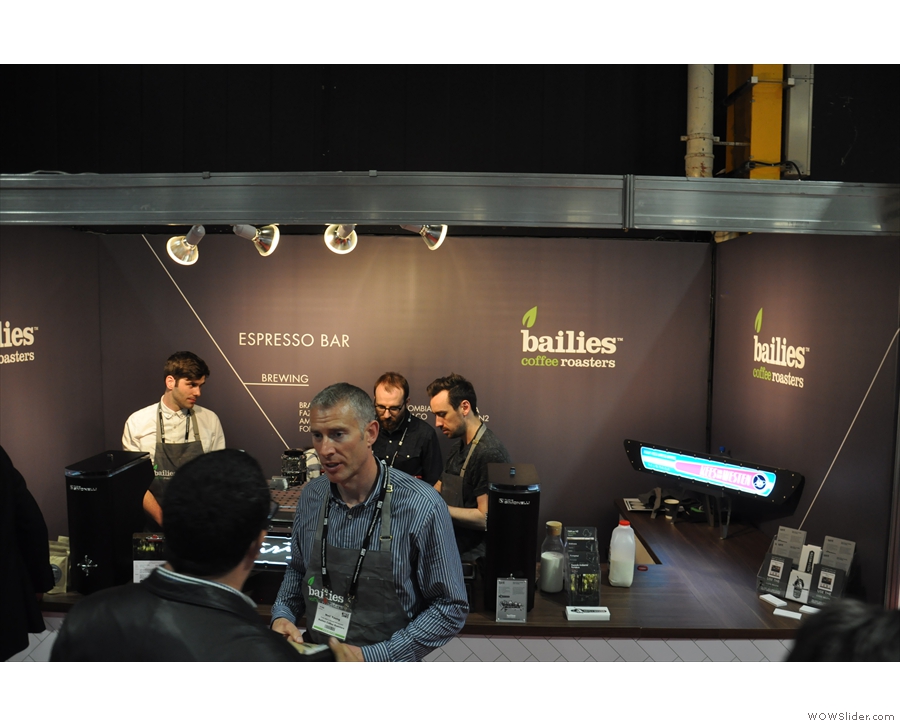
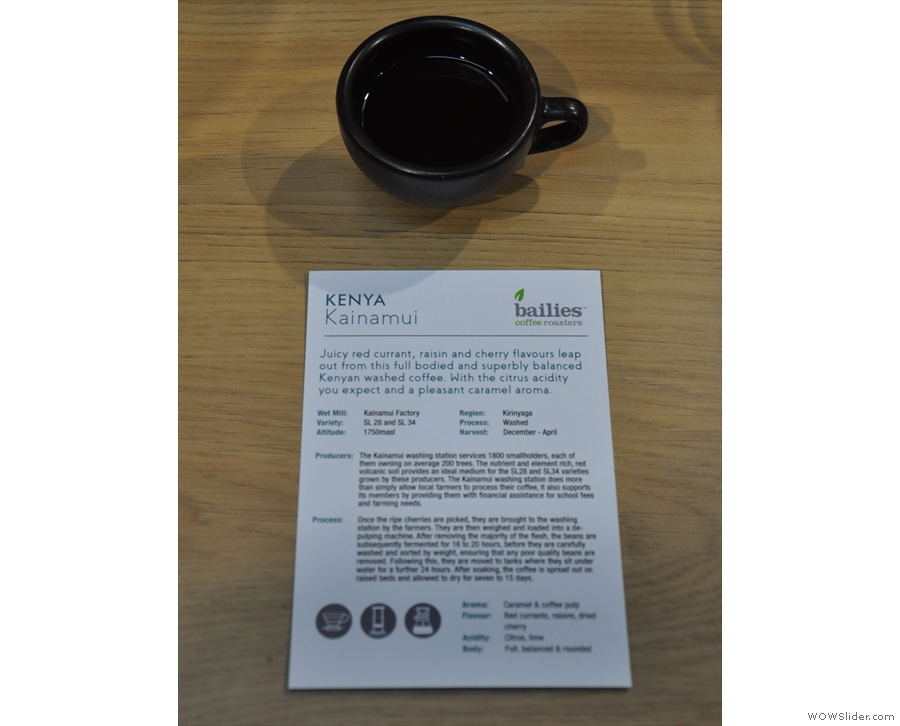
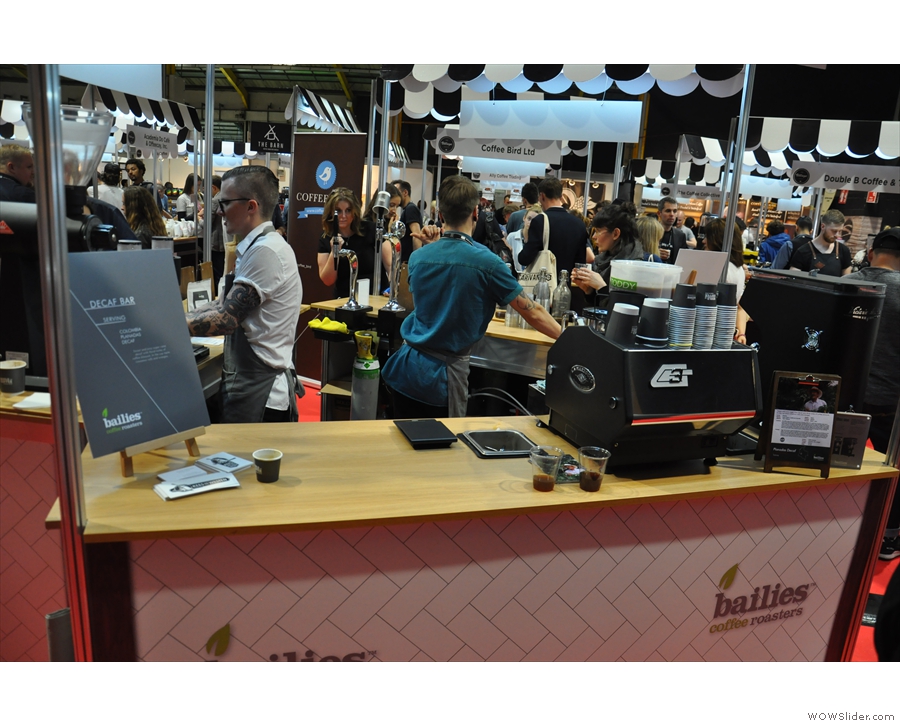
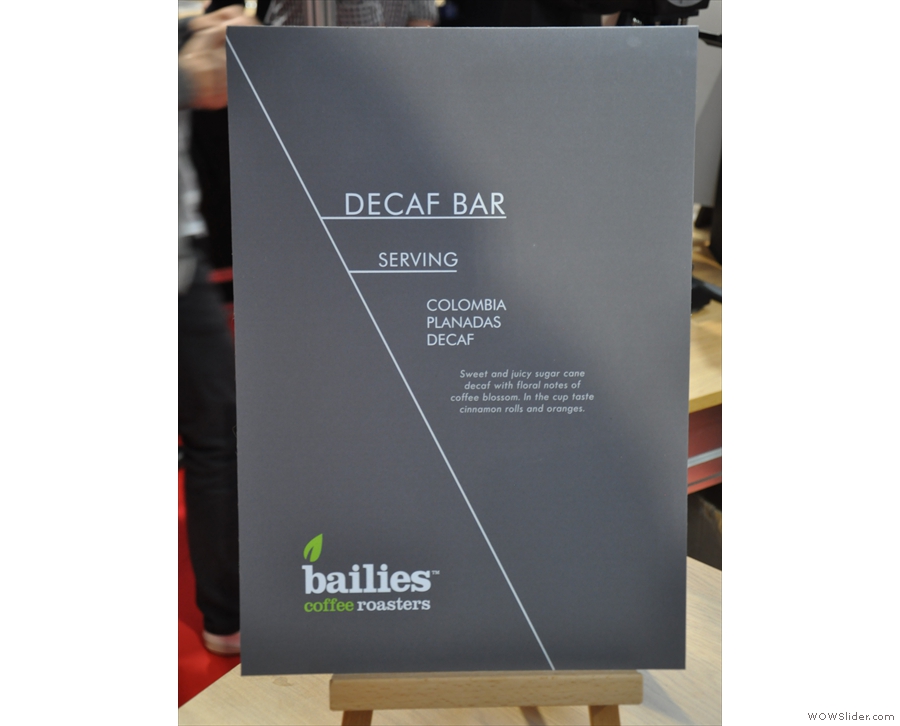
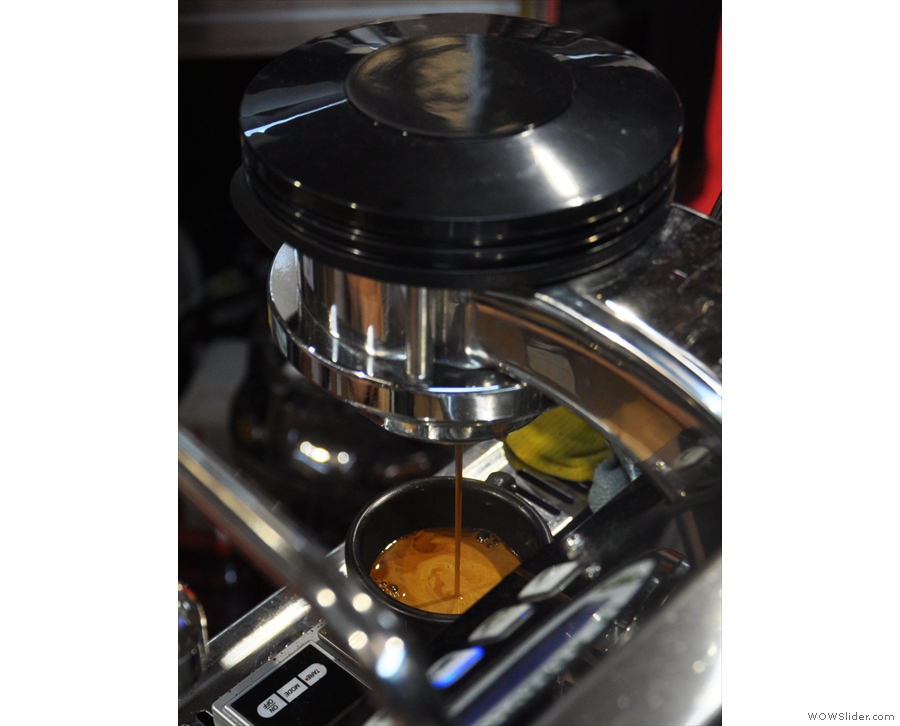
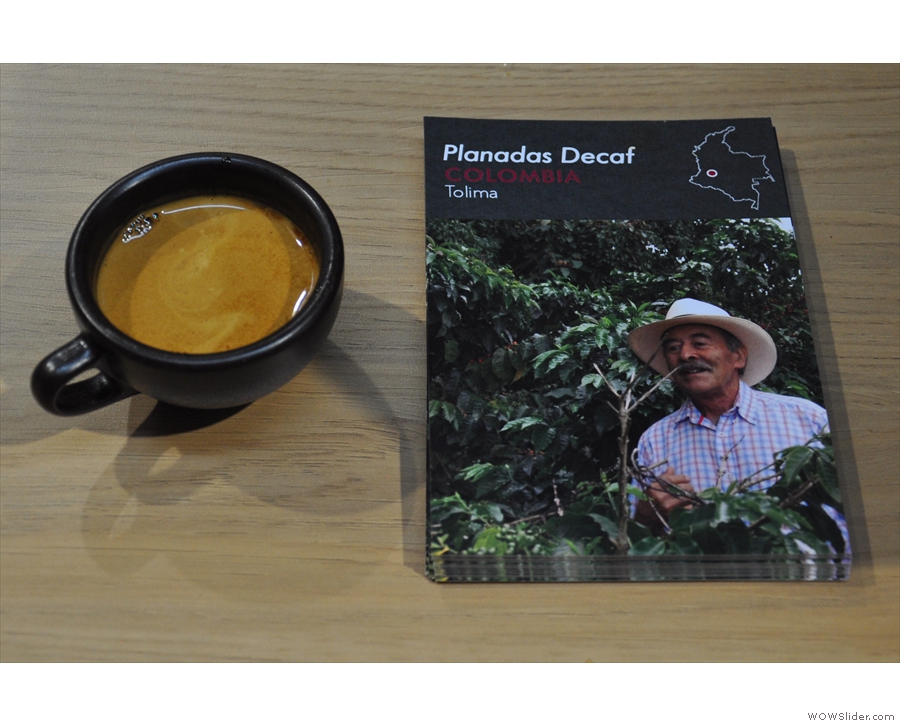
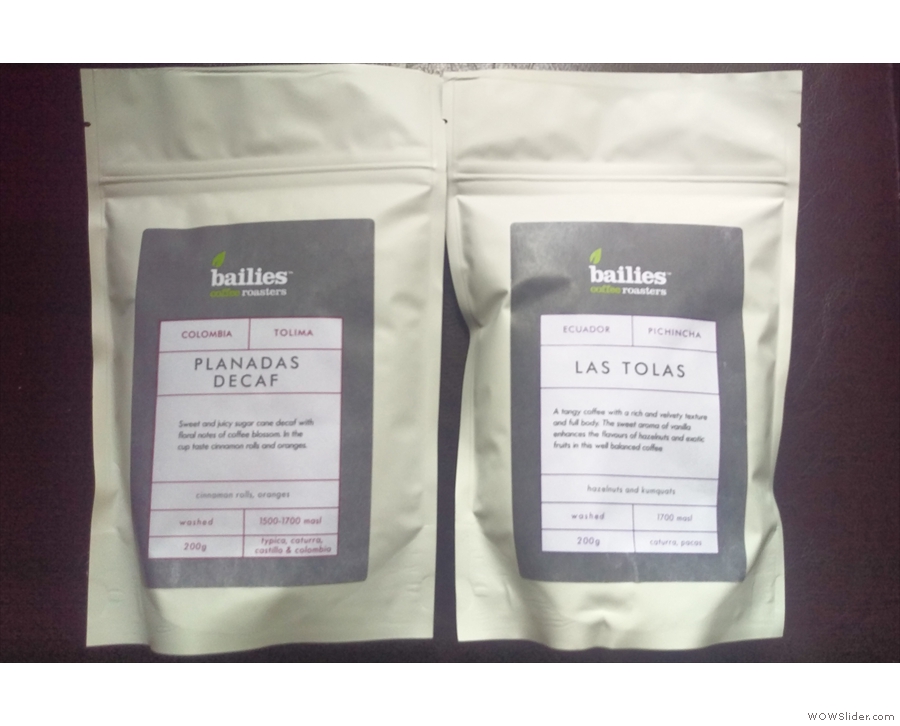
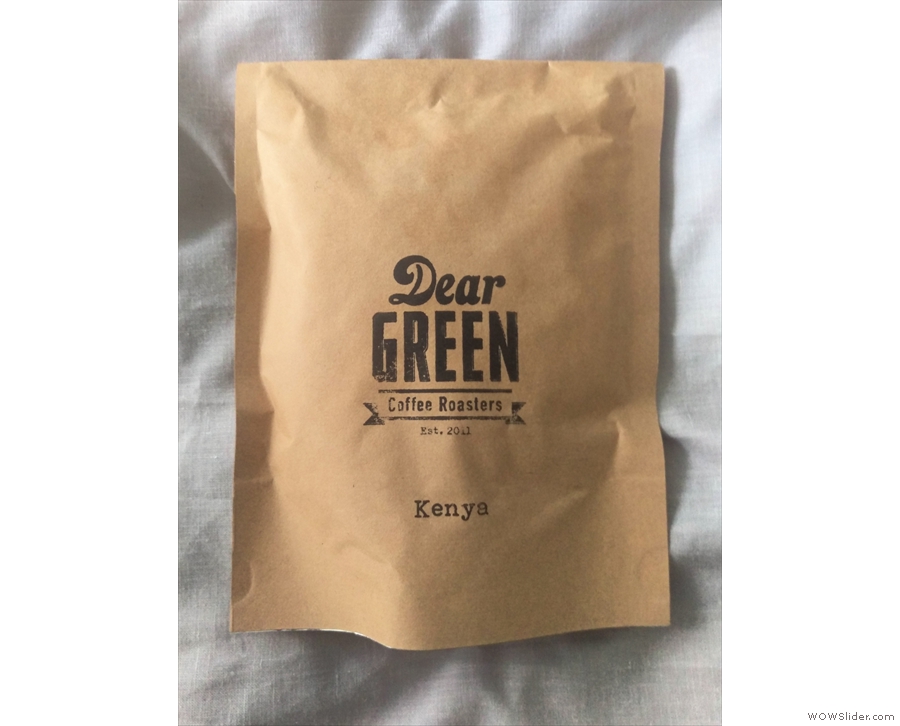
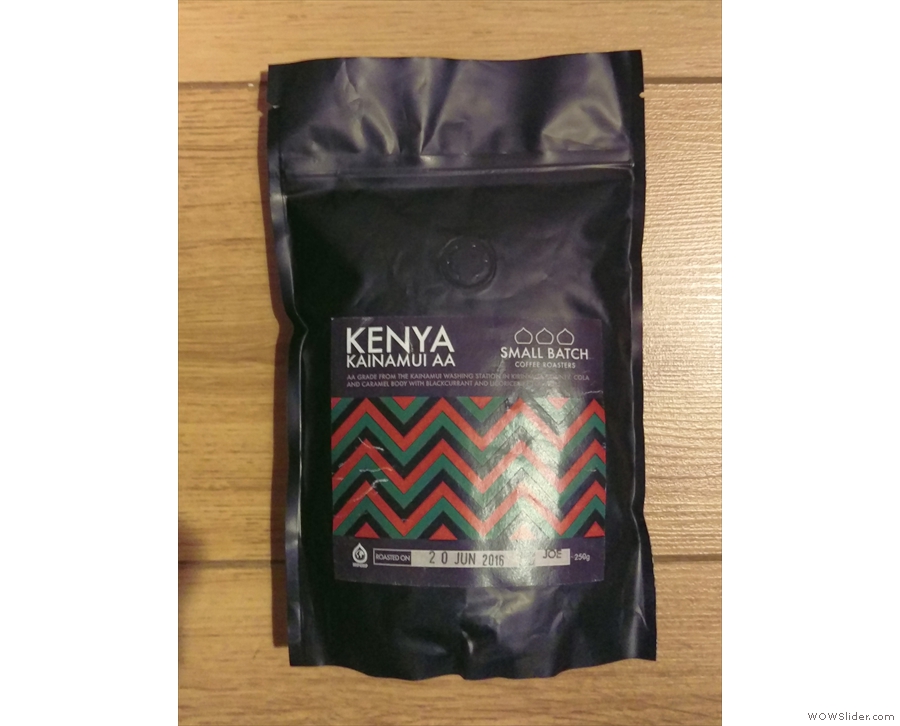
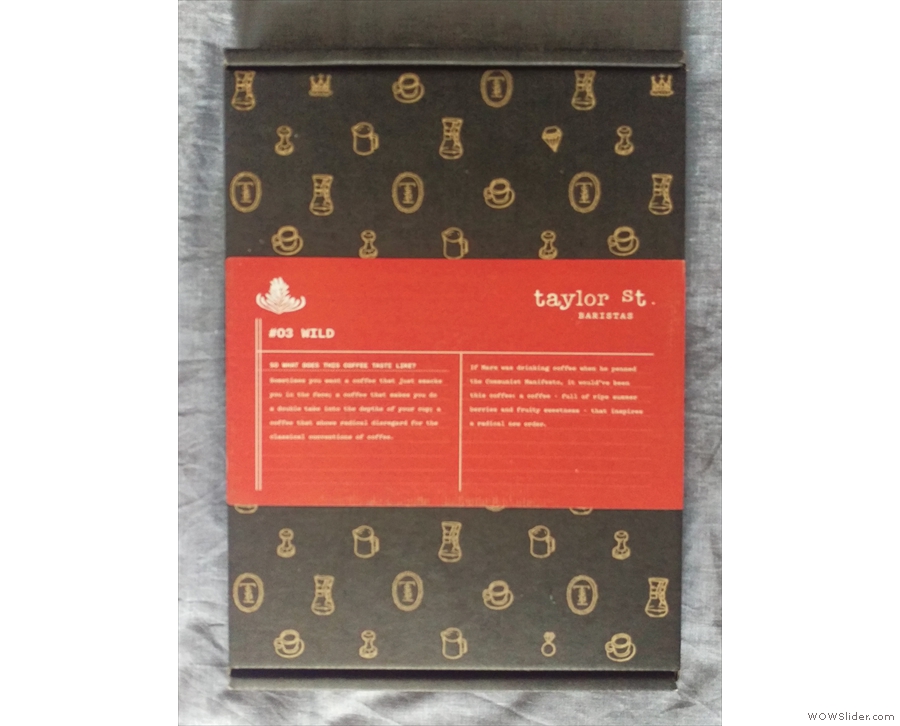
 1
1 2
2 3
3 4
4 5
5 6
6 7
7 8
8 9
9 10
10 11
11 12
12 13
13 14
14 15
15 16
16 17
17 18
18 19
19 20
20 21
21 22
22
Pingback: World of Coffee 2016: The Kit | Brian's Coffee Spot
Pingback: Faculty Update | Brian's Coffee Spot
Pingback: Allpress Espresso | Brian's Coffee Spot
Pingback: World of Coffee 2018 | Brian's Coffee Spot